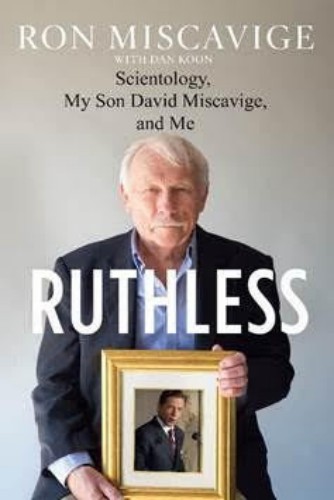
Ruthless
Scientology, My Son David Miscavige, and Me
کتاب های مرتبط
- اطلاعات
- نقد و بررسی
- دیدگاه کاربران
نقد و بررسی

May 16, 2016
The Church of Scientology has become a corrupt, totalitarian despotism under its leader David Miscavige, according to this excoriating memoir by his father. Ron Miscavige, a musician who worked on Scientologist videos, still appreciates founder L. Ron Hubbard's philosophy and credits its auditing processâa kind of psychoanalysis, as he describesâwith curing David's boyhood asthma. Unfortunately, he contends, under his son's leadership Scientology is mainly about extracting money and labor from the faithful. Miscavige describes prison-like conditions at the church's California compound: Sea Org devotees worked endless hours for negligible pay, faced frequent roll calls and grim communal meals, had mail and phone calls monitored, endured weeks-long confinement in "the Hole" for imaginary infractions, were accompanied by guards off-base, and were hounded by and disconnected from family members if they, like the author, escaped. Meanwhile, Miscavige suggests, David's Machiavellian rise to power made him a "toxic personality" and "sociopath" given to public rages laced with obscenities (sometimes directed at his father), chaotic micromanagement, and sadistic power plays. Miscavige and amanuensis Koon shape these anecdotes into a vivid portrait of religion as a cross between monastic deprivation and abusive McJob. The resulting memoir adds the poignancy of family conflict to now-familiar stories about Scientology. Photos.

July 1, 2016
Miscavige began studying Scientology when his son David, the current leader of the Church of Scientology, was a child. Later, under David's leadership, the author worked as a musician for the church. While Miscavige repeatedly avows that Scientology improved his life, those gains are overshadowed by severe personal restrictions, including not being allowed to attend family funerals and having phone calls monitored. It wasn't until after he left the church and discovered that David was having him followed by private investigators, did the author start looking "into what was really going on with Scientology." Considering that Miscavige dedicated more than half of his life to the organization, some aspects of his experience seem relatively unexamined. However, the narrative's neutral tone lends credibility to Miscavige's account. At times, it also renders an emotional flatness that, combined with a lack of more detailed information about the religion, will leave some readers feeling that pieces of the picture are missing. VERDICT The media coverage the book has already received could pique general interest, and readers may appreciate the author's unique perspective.--Meagan Storey, Virginia Beach
Copyright 2016 Library Journal, LLC Used with permission.

























دیدگاه کاربران